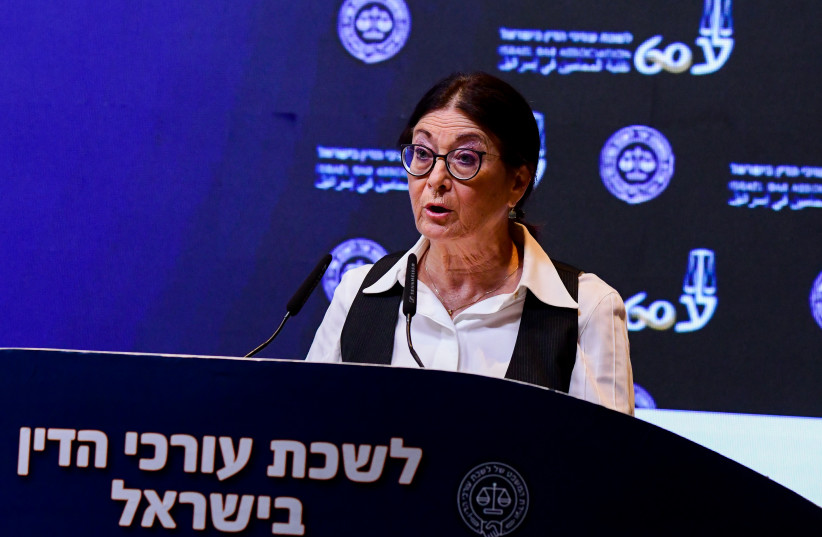Justice Minister Gideon Sa’ar reopened the list for candidates for the Supreme Court until January 6.
The move on Tuesday could either finally break the months-long logjam for filling two empty seats and two seats that will become vacant in April, or it could lead to a more extended delay in resolving the dispute over the court’s future.
The committee postponed its November 23 meeting that had been set to make the selections, and on December 2, Sa’ar appointed Tel Aviv District Court Judge Shaul Shohet to a six-month temporary seat on the court.
The Supreme Court declined to respond.
The Israel Bar Association said it would continue to work professionally and productively with Sa’ar, while sticking to its positions on the kinds of candidates that should be selected.
Sa’ar clearly believes he has an advantage because Supreme Court President Esther Hayut is the party most harmed by the two seats on the court that have been empty since April.
On the other hand, Sa’ar can be harmed politically if he appears stuck in the same political deadlock that the previous government of prime minister Benjamin Netanyahu was unable to overcome.
One of Sa’ar’s promises was to restore normalcy and functioning government and appointments, something that is difficult when the Supreme Court may not go shorthanded until close to April, when two more justices will retire.
In addition, by Sa’ar agreeing to temporary justices earlier in December – a practice that was stopped around 15 years ago – he at least somewhat lessened the pressure on Hayut.
The existing two gaping holes on the court came from the retirements of justices Hanan Melcer and Menachem Mazuz in April.
Besides Sa’ar and Hayut, the committee also includes: Justice Yitzhak Amit, Justice Uzi Vogelman, Interior Minister Ayelet Shaked, Labor MK Efrat Riten, Religious Zionist Party MK Simcha Rotman and Israel Bar Association representatives Muhammad Naamana and Ilana Sakar.
On one hand, by virtue of the makeup and ideologies on the committee, there has always been somewhat of a standoff between the more conservative Sa’ar and the panel’s more progressive three Supreme Court justices.
But those opposing sides had mostly reached a compromise in splitting the four appointments between progressive and conservative candidates.
In fact, the delay came from a dispute between Sa’ar and the Israel Bar Association.
The bar association wants one of the four candidates to be a private-sector lawyer, or alternatively, at least a judge with a long prior private sector career, and has provided three names it would sign off on.
It appears that Sa’ar has not accepted those names.
By October 2023, more than one-third of the 15 justices on the Supreme Court is due to turn over, potentially altering the course of the court toward a more conservative direction given that Sa’ar generally prefers conservative justices over liberal ones.
In mid-November, it seemed Sa’ar and Hayut had reached a deal in which the leading potential candidates were: Tel Aviv District Court Judge Khaled Kabub, Jerusalem District Court Judge Gila Canfy-Steinitz (wife of former minister and Likud MK Yuval Steinitz), Tel Aviv District Court Judge Ruth Ronen, and an as yet undecided additional conservative candidate.
This last candidate seems to be the sticking point where the bar association wants a justice of its mindset, given that two justices who came from the private sector retired in recent years.
Neal Hendel and George Karra are due to retire in April.

